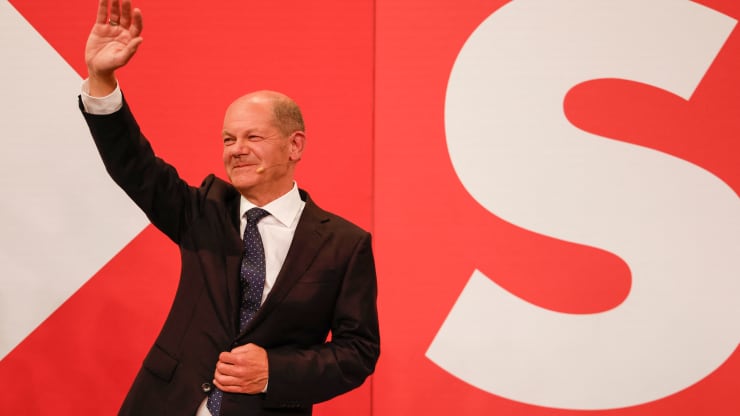Preliminary official results released early Monday show that the Social Democratic Party has narrowly defeated Chancellor Angela Merkel’s Christian Democratic Union by 1.6 percentage points.
Because of the tight result, the Social Democrats, who received just 25.7 percent of the vote, will have to form a coalition with other parties in order to establish a government. And, given the complicated equation that may be needed in Germany to establish a government, it is conceivable that the party that came in second will end up being the one to lead the nation if the winning party is unable to get the support of the other parties.
It could take weeks or months of wrangling for a coalition to be formed, leaving Europe’s largest democracy suspended in a state of limbo at a critical time when the continent is still struggling to recover from the pandemic and France — Germany’s partner at the heart of Europe — is facing divisive elections of its own next spring, according to political analysts.
The election on Sunday marked the end of an era for Germany and for Europe as a whole. Ms. Merkel served as not just the chancellor of Germany, but also as the de facto leader of Europe for more than a decade. She guided her nation and the continent through a series of crises, and in the process, she contributed to Germany regaining its position as Europe’s dominant force for the first time since World War Two.
The campaign turned out to be the most turbulent in decades, according to polls. In the past, Armin Laschet, the candidate of Angela Merkel’s Christian Democrats, had been considered the front-runner. However, a series of mistakes, exacerbated by his personal unpopularity, have undermined his party’s advantage in the election. Olaf Scholz, the Social Democratic candidate, was widely expected to lose the election until his calm demeanour inspired his party to a stunning 10-point comeback victory. And the Greens, who were briefly in the lead in the polls early on, fell short of expectations but nevertheless managed to achieve their highest ever result.
With just 24.1 percent of the vote, the Christian Democrats’ percentage of the vote plummeted, putting them on track to have their lowest showing in their entire history. For the first time in history, three parties will be required to create a coalition – and both major parties want to conduct competitive negotiations in order to do this.
In spite of this, Mr. Laschet arrived at his party’s headquarters an hour after the votes closed, calling the result “unclear” and promising to work toward a government formation even if his party finished second.
Support for the far-right Alternative for Germany, or AfD, seemed to have remained relatively stable, while support for the Left party appeared to be hanging around the 5 percent level required to gain seats in Parliament.

